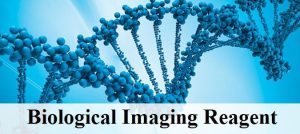
In recent years, advancements in biologic imaging reagents have revolutionized medical diagnosis and treatment. Biologic imaging reagents are specialized chemicals that are used in a wide range of medical imaging techniques, including magnetic resonance imaging (MRI), computed tomography (CT), and positron emission tomography (PET). These imaging reagents provide doctors and researchers with detailed images of internal body structures, which can be used to diagnose and treat a variety of medical conditions.
The Role of Biologic Imaging Reagents in Medical Diagnosis
Biologic imaging reagents play a critical role in medical diagnosis, allowing healthcare providers to obtain detailed images of internal body structures. These images can be used to diagnose and monitor a variety of medical conditions, including cancer, heart disease, and neurological disorders.
For example, in cancer diagnosis, biologic imaging reagents are used to identify the location and size of tumors. This information is critical for healthcare providers to determine the best course of treatment for the patient. In heart disease diagnosis, biologic imaging reagents are used to obtain images of the heart and surrounding blood vessels. These images can be used to diagnose conditions such as atherosclerosis and heart attacks. In neurological disorder diagnosis, biologic imaging reagents are used to obtain images of the brain and spinal cord. These images can be used to diagnose conditions such as Alzheimer’s disease and multiple sclerosis.
Get Your Sample PDF Here:: https://www.alliedmarketresearch.com/request-toc-and-sample/14312
Types of Biologic Imaging Reagents
There are several types of biologic imaging reagents, each with its own unique properties and applications. Some of the most commonly used types of biologic imaging reagents include:
Contrast Agents: Contrast agents are used in medical imaging techniques such as MRI, CT, and ultrasound to enhance the contrast between different tissues in the body. These agents are designed to highlight specific areas of the body, making them easier to see on the resulting images.
Radiopharmaceuticals: Radiopharmaceuticals are used in medical imaging techniques such as PET to provide information about the function of various organs and tissues in the body. These agents are made up of a radioactive substance and a carrier molecule, which is designed to target specific tissues or organs.
Fluorescent Dyes: Fluorescent dyes are used in medical imaging techniques such as fluorescent microscopy to visualize specific molecules or structures in the body. These dyes absorb light of a specific wavelength and emit light of a different wavelength, making them useful for imaging in living organisms.
Advancements in Biologic Imaging Reagents
Advancements in biologic imaging reagents have led to the development of new and more advanced imaging techniques, which are more accurate, faster, and less invasive than traditional methods. Some of the most exciting advancements in biologic imaging reagents include:
Molecular Imaging: Molecular imaging is a technique that uses biologic imaging reagents to visualize the function and behavior of specific molecules in the body. This approach can be used to diagnose and monitor a wide range of medical conditions, including cancer and cardiovascular disease.
Super-Resolution Microscopy: Super-resolution microscopy is a technique that uses biologic imaging reagents to achieve higher resolution images than traditional microscopy methods. This approach can be used to visualize the intricate details of cells and tissues in the body, providing researchers with a better understanding of how they function.
Photoacoustic Imaging: Photoacoustic imaging is a technique that uses biologic imaging reagents to obtain images of tissues based on their absorption of light. This approach can be used to obtain images of deep tissue structures in the body, providing a more accurate and less invasive alternative to traditional imaging techniques.
Challenges in Biologic Imaging Reagents
Despite the potential benefits of biologic imaging reagents, there are several challenges that need to be addressed in order to maximize their potential in medical diagnosis and treatment. One of the primary challenges is the development of biologic imaging reagents that are both safe and effective. Many imaging reagents have the potential to cause adverse reactions, such as allergic reactions, and it is essential to ensure that they are carefully tested and approved before they are used in patients.
Another challenge is the cost of biologic imaging reagents. Some imaging reagents can be expensive to produce, which can limit their availability and accessibility, particularly in developing countries. It is essential to ensure that the benefits of these reagents are available to all patients, regardless of their ability to pay.
Finally, there is a need for continued research and development of new biologic imaging reagents. As our understanding of the human body and the underlying causes of disease continues to evolve, the need for new and innovative imaging reagents will continue to grow. It is essential to invest in research and development to ensure that we can continue to make advances in medical diagnosis and treatment.
Biologic imaging reagents have revolutionized medical diagnosis and treatment, providing doctors and researchers with a powerful tool to visualize internal body structures and diagnose a wide range of medical conditions. With the continued development of new and innovative imaging reagents, we can expect to see even more advances in medical diagnosis and treatment in the future. It is essential to ensure that healthcare providers are trained in the use of these reagents and that patients are informed about the potential benefits of biologic imaging reagents for their health. By working together, we can harness the power of biologic imaging reagents to improve health outcomes and transform the way we approach medical diagnosis and treatment.
Contact Us:
David Correa
USA/Canada (Toll Free): +1-800-792-5285, +1-503-894-6022
help@alliedmarketresearch.com

